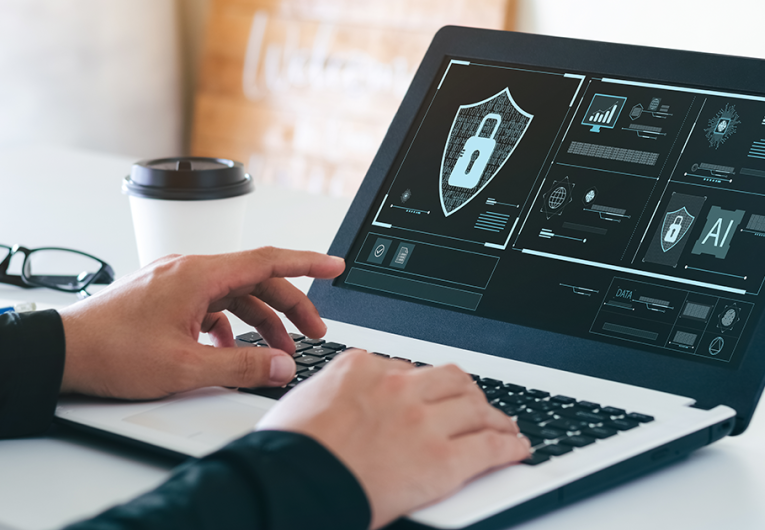
What is VPN? Firewall? Both? We've Got Answers to Your Questions
Your business is only as secure as the digital shields you put up to thwart hackers, phishing artists, and cyber thieves. But keeping your network, data, and email communication safe requires more than a single tool.
In the quest to find the right solutions, business owners often need clarification about firewalls, Virtual Private Networks, or VPNs and their roles in network security.
In this post, we look at the details so you can make informed decisions.
Role of Firewall, VPN
A firewall is a network security device that monitors and controls incoming and outgoing network traffic based on predefined security rules. It acts as a barrier between a trusted internal network and an untrusted external network (typically the internet) to prevent unauthorized access and protect against various threats.
A VPN creates a secure, encrypted connection between a user's device and a private network over the internet. It's primarily used to establish secure remote access to a company's internal network or to protect data during email transmission.
Security Roles
A firewall protects against external threats like unauthorized access, malware, and network attacks. It filters incoming and outgoing data packets and examines their source and destination addresses, port numbers, and protocols.
The primary purpose of a VPN is to provide secure communication over an unsecured network, such as the Internet. It encrypts the data transmitted between the user's device and the private network, ensuring confidentiality and preventing unauthorized interception or eavesdropping.
Connectivity and Access
While a firewall can provide limited remote access capabilities, its primary focus is on securing the network by controlling traffic flow and ensuring only authorized connections are allowed.
A VPN enables remote users or branch offices to securely connect to a company's internal network over the Internet. It allows employees to access resources, applications, and files as if they were directly connected to the local network, regardless of their physical location.
Deployment and Scope
Firewalls are network security devices deployed at the network perimeter or within the internal network infrastructure. They protect the entire network by filtering and controlling traffic flow at the network level.
VPNs are typically deployed per-user and are commonly used for remote access scenarios. They create secure tunnels between individual devices and the network they are connecting to.
Hierarchy and Priority
In a typical network setup, the firewall comes first, followed by the VPN. This is because the firewall is responsible for securing the network perimeter and enforcing security policies at the network level. It helps protect against external threats and unauthorized access attempts.
Once the firewall is in place, a VPN can provide secure remote access to the internal network or establish secure connections between different networks. The VPN traffic passes through the firewall, which allows or blocks the VPN traffic based on its configured rules.
VPN Architecture and Equipment
A VPN (Virtual Private Network) can be set up on different devices depending on your requirements and preferences.
Router
Setting up a VPN on your router allows all devices connected to the network to use the VPN automatically. This is particularly useful if you want to secure the entire network and protect all devices, including computers, smartphones, and smart home devices. However, not all routers support VPN configurations, so you need to check if your router has this capability.
Computer
You can also install a VPN client on your computer. This option provides flexibility, as you can choose when to use the VPN and when not to. It is suitable to secure only your computer's internet connection.
Mobile Devices
Similar to computers, you can install VPN client apps on your smartphones or tablets. These apps work similarly to computer clients and allow you to secure your mobile internet connection.
It's worth mentioning that some VPN providers may offer additional options, such as browser extensions or dedicated apps for specific devices or platforms, which can simplify the setup process.
Sparklight Managed Router and Managed Security
If your business is looking for a router/VPN solution, bundling Sparklight’s Managed Router and Managed Security services provides a cost-efficient router-VPN solution.
• Provides site-to-site VPN and mobile VPN to clients
• Works with single or multiple business locations
• Guards against suspicious network traffic, like malware
• Enforces control policies, analyzes traffic, and provides rapid detection against the attacks
• Filter out inappropriate content and enforce safe-search policies
• Monitor network performance, traffic shaping, and internet flow preferences
To learn more about VPN solutions for Business, contact us today.
The trends, insights, and solutions you need to grow your business.
By signing up, you’re subscribing to our monthly email newsletter, The
Wire. You may unsubscribe at any time.
Your information stays safe with us. Learn more about our privacy
policy.











![[#MSP_NAME#] Logo](/themes/sparklight_business/images/transition-logos/migration-banner-logo-[#MSP_CD#].png)
